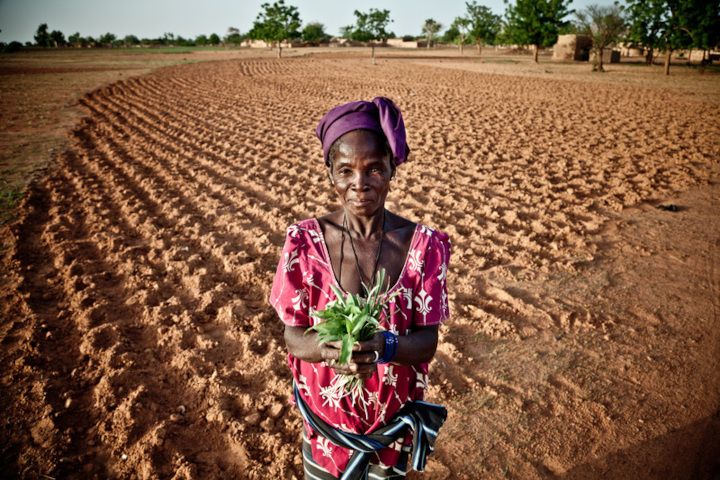© Pablo Tosco / Oxfama via flickr
The new Cold War it risks having very serious repercussions on the entire African continent. And the food crisis that threatens 29 million people, of whom at least one fifth are children, is also part of a conflict-torn framework. Published on ComparisonsJune 6, 2022.
The Russian-Ukrainian crisis risks turning back the clock of history in Africa. A new (and unprecedented) juxtaposition of blocks no longer of an ideological type (as with the Cold Warif even then the divisive word “ideology” made sense) but a clash between Western powers of democratic / liberal inspiration and the rest of the world.
Conflicts and raw materials
There is oil on the plate, gasprecious minerals, fertile lands, all that is needed to run complex economies and industries.
The international players are many and highly motivated: the United States, China, the European Union, Russia, Turkey and the Gulf countries. Everyone plays his game and often, while being part of “blocks”, in reality everyone aims to carve out a personal role in the world chessboard.
The ongoing conflicts in the Central African Republic, Mali, Burkina Faso, South Sudan, Somalia, Tigray (Ethiopia), Kivu and Ituri (Democratic Republic of Congo), Cabo Delgado (Mozambique) hide the interests of these powers in the raw materials sector. Furthermore, Libya is shattered, out of the control of the Tripoli government and at the mercy of armed gangs supported by foreign powers. Meanwhile, the Sahel remains hostage to jihadist terrorists while Putin’s Russia is occupying all the political and military spaces left free by the withdrawal of French soldiers, accused by local populations of having kept puppet governments alive in order to defend the interests of Paris, to at the expense of political stability and security.
Popular demonstrations in Mali and the Central African Republic in support of the company’s Russian mercenaries are no coincidence Wagner, considered as liberators by neo-colonial regimes. The new political agenda dictated by the Russian-Ukrainian war risks relegating to the background the difficult transition path that Sudan is facing after 30 years of dictatorship, as well as suffering Somalia, which has just elected a new president.
Meanwhile, to counter the Islamist terrorists Shebab the US Department of Defense has decided to send 500 special forces soldiers, re-establishing a presence in the country after Donald Trump had imposed a military rotation system, now considered risky and inefficient.
The poorest, as always
The food crisis that threatens 29 million people, at least one fifth of them are children, fits into such a torn framework. Russians and Ukrainians supplied African markets with their grain. Exports blocked, while international aid is also struggling to arrive due to the generalized crisis that blocks the collection of adequate funds.
Climate change (very little rainfall in the last 4 years and soaring temperatures) are sending agriculture and livestock upside down, particularly in the Horn of Africa and Kenya, but it is also alarming in Algeria, Niger, Uganda and Madagascar.
The feeling is that in Africa (away from the news spotlight mainstream) will once again record the dramatic consequences of the clash between world powers, where, as always, the highest price will be paid by unarmed civilians, who have not been spared by the Covid and the related economic crisis.
Just like 60 years ago when the United States, Russia (but also Mao’s China) clashed indirectly on the Continent through support for rebel groups, liberation armies that (with the exception of political and military leaders) often did not even know for whom and for what they fought because they were forced to do so, on pain of their lives or those of family members. Unaware pawns of a deadly game of massacre, the consequences of which are still suffered in Africa today with political regimes tenaciously clinging to armchairs and powers.
The new geopolitical order determined by the war between Russia and Ukraine passes once again through the African meridian but once again the Continent has the role of silent paying and suffering guest. The lack of authoritative and credible leadership and the lack of incisiveness of the action of the African Union unfortunately contribute to an uphill path.
- Enzo Nucci he is Rai correspondent for sub-Saharan Africa


